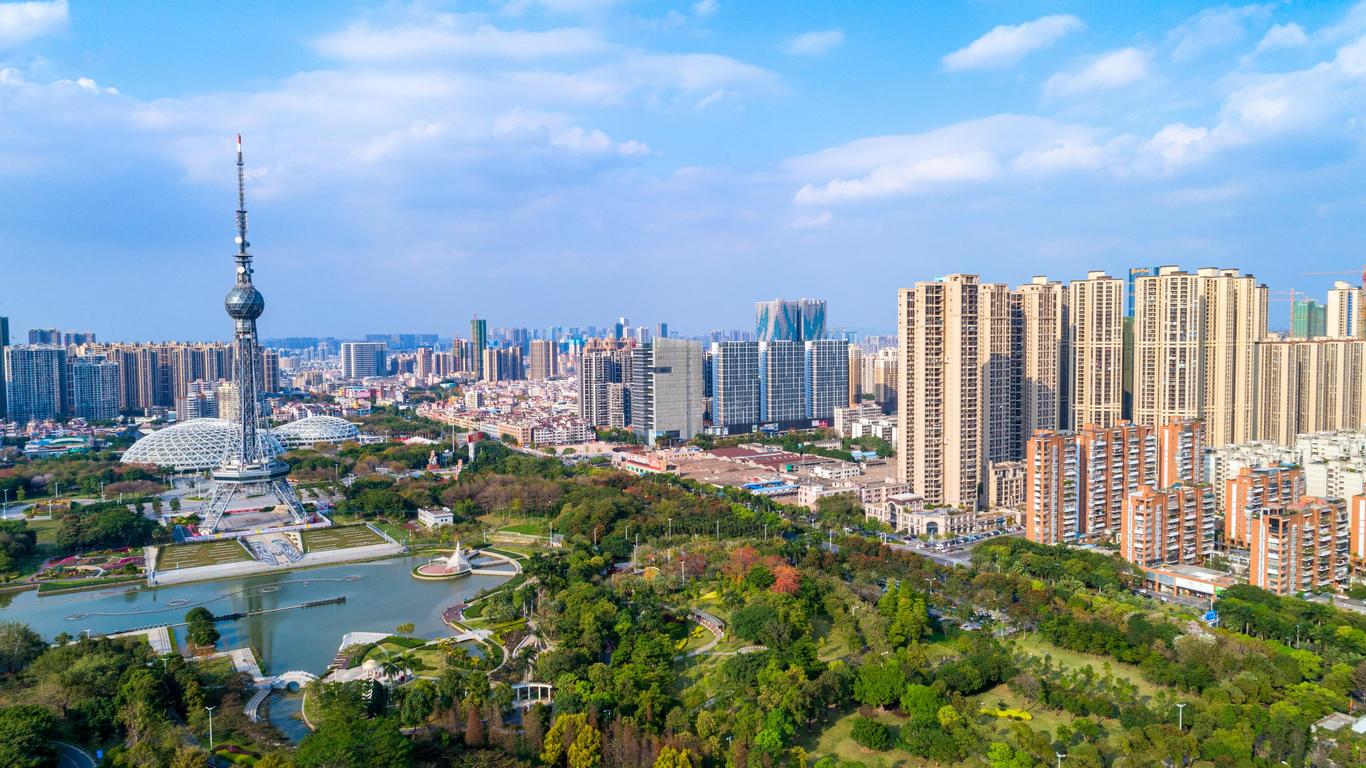Located in the north of the Pearl River, Foshan is a prefecture-level city in the in the Guangdong Province of southeastern China with a population of 7.2 million people. Made up of five different districts, Foshan’s government seat is in the Chancheng District of the city, and its industry focuses on ancient traditions of fishing and farming in addition to the modern tourism trade. Foshan is the third largest city in the province and acts as a centre of culture and heritage, often praised as the home of such traditions as kung fu and Chinese opera.
Foshan is full of temples for visitors to explore, including Zumiao Temple which contains memorials to kung fu legends and local historical figures, and South China Sea Temple which is a one-thousand-year-old place of Buddhist worship. In addition to culture, natural beauty can be found in Foshan, for example, Liangyuan Park is full of classic Chinese architecture and Mount Xiqiao, once an active volcano is now home to a 62-metre high Buddha statue looking over the city. Visitors can also picnic by the lake in Leigang Park, try local cuisine in the restaurants, shop at a large mall complex at Baihua Square or discover the nightlife of the city.
Visitors can travel around Foshan by the inexpensive and modern bus services, or by taxi, which is the most convenient mode of transport by those not familiar with the city. For visitors travelling from throughout China, the city has a train station and bus connections to nearby towns. The nearest airport is New Guangzhou Baiyun International Airport, which provides bus services into the city centre less than an hour away.
Foshan began as a small settlement on the banks of the Fen River and remained that way for a long time until the rise of the 14th century Ming dynasty, during which the city became one of the major markets in the country. Its local ceramic and metalwork industries provided the economy, and the city’s port offered a substantial trade, and in the 20th century it became well connected to other surrounding towns.





